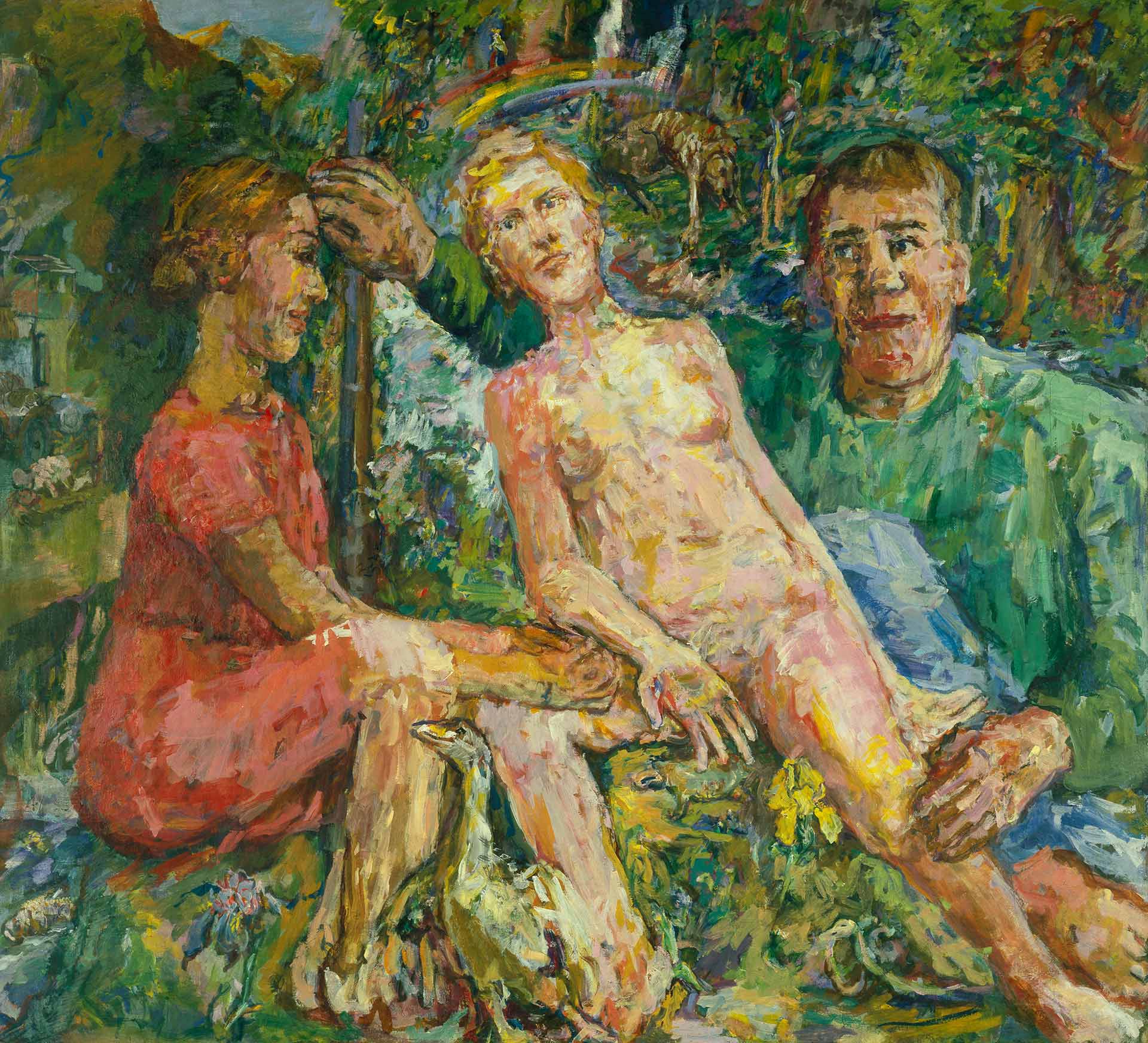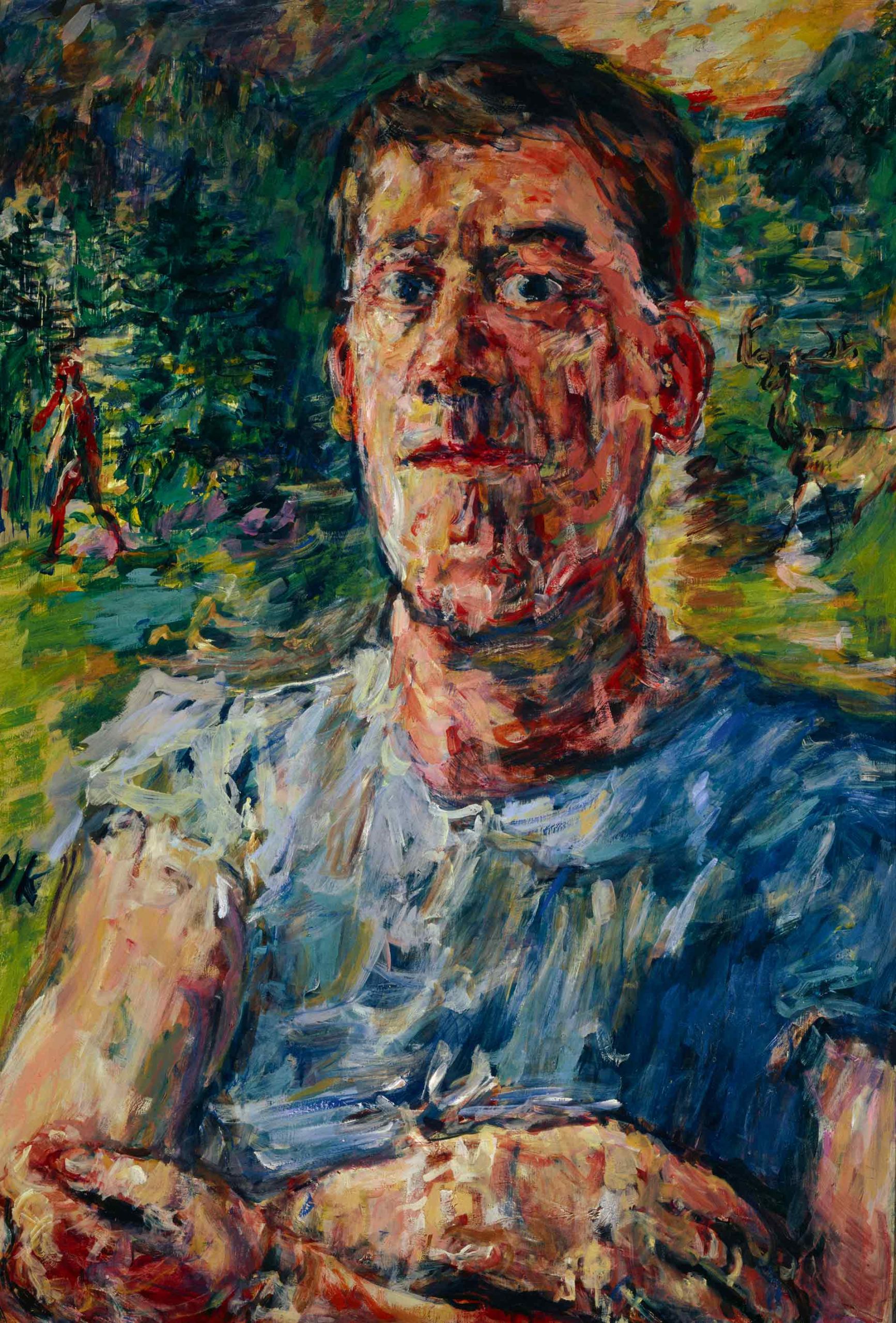Section IV - Resistance in Prague (1934–1938)
When Adolf Hitler came to power, Kokoschka publicly committed himself to fighting Nazism. In May 1933, he lodged a protest in the German daily newspaper Frankfurter Zeitung against the resignation from the Prussian Academy of Arts of painter Max Liebermann (b. 1874; d. 1935), an important intellectual and moral figure.
In Vienna, the 1934 civil war that opposed fascists and socialists weakened the health of Kokoschka’s mother, who died shortly after. In financial difficulty, he emigrated to Prague, his father’s hometown, where his sister Berta lived. There he met Olda Palkovskà (b. 1915; d. 2004), a law student, whom he would marry in 1941.
From Czechoslovakia, he watched the Nazi trap gradually shut over Europe. He published numerous articles and organized conferences to alert people of the impending danger. The Nazi’s traveling exhibition of “degenerate art” displayed nine of his paintings, alongside many masterpieces of the European avant-garde. He reacted with a masterly Self-portrait of a “Degenerate Artist” (1937).
As a challenge to this dark political situation, his work had never been so shimmering and pastoral. His touch accurately depicts a luxuriant nature that invades the canvas, a setting for enigmatic stagings.


